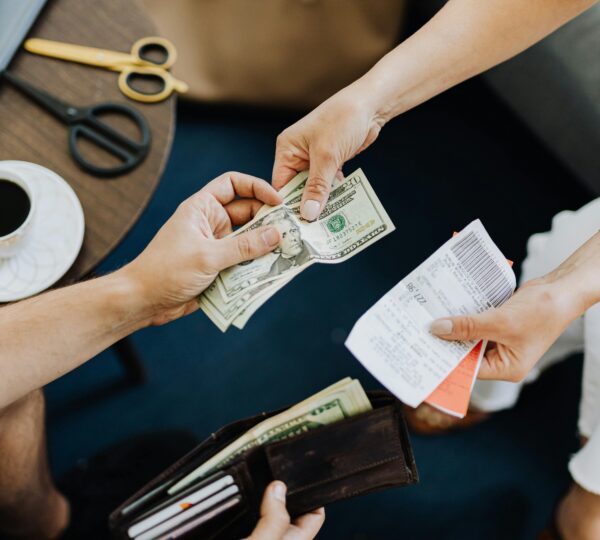
How to pay off bills quickly: Practical Strategies for Financial Relief
According to a recent report by the Federal Reserve Bank of New York, household debt in the United States reached a staggering $17 trillion in 2023, with a significant portion attributed to credit card debt, student loans, and mortgages. Similarly, Canadian households are facing rising debt levels, with Statistics Canada reporting an average debt-to-income ratio of 185%. These numbers highlight a growing problem across North America—people are struggling to manage their bills and debt.
If you’re feeling overwhelmed by the bills piling up each month, you’re not alone. Fortunately, there are strategies that can help you take control of your finances and pay off bills quickly. With a solid plan and consistent effort, you can work toward financial freedom and ease the burden of debt.
In this post, we’ll explore actionable tips to help you pay off your bills quickly and regain control over your financial future.
How to pay off bills quickly
1. Prioritize Your Bills: Understanding What’s Urgent
Before you can start paying off your bills quickly, you need to understand which ones require immediate attention. Some bills carry heavier consequences than others if they go unpaid. Prioritizing your bills ensures that you avoid late fees, utility cut-offs, and interest rate hikes.
Bills with the highest interest rates: Credit cards and payday loans often carry high-interest rates, which can spiral out of control. Tackling these first can prevent your debt from growing unnecessarily. With credit card interest rates averaging around 20% in North America, prioritizing this debt is crucial.
Essential services: Bills for necessities like rent/mortgage, utilities, and insurance should be paid promptly to avoid disruptions.
Debt with penalties: Missed payments on loans like student loans or car loans often come with penalties, adding extra fees. It’s important to note that student loan debt in the U.S. reached a record high of $1.73 trillion in 2023, which has left many individuals burdened by steep payments. Consider tackling these to avoid further penalties.
2. Create a Budget That Works for You
A budget is your financial roadmap. It tells you where your money is going and how much you can realistically put toward paying off your bills. Apps like Mint are popular for tracking your spending and managing your budget.
Steps to creating a simple budget:
-
Track your income: Know exactly how much money is coming in every month. To help you do this, click the link to download a free calculator.
-
List your fixed and variable expenses: This helps you understand your essential costs vs. non-essential spending.
-
Set savings and debt repayment goals: A budget shows areas where you can cut back, like reducing dining out, and reallocate that money toward bills.
3. Snowball vs. Avalanche: Choose Your Debt Repayment Strategy
When it comes to paying off multiple bills, two of the most effective strategies are the debt snowball and debt avalanche methods.
- Debt Snowball Method: This method involves paying off your smallest bills first. Once the smallest bill is cleared, you move on to the next, and so on. The psychological benefit here is that as you eliminate smaller bills, you feel a sense of accomplishment and gain momentum to tackle larger debts.
- Debt Avalanche Method: This method prioritizes debts with the highest interest rates. By paying off high-interest debts first, you reduce the amount of interest accumulating on your overall balance, saving you more money over time.
Which method is best for you?
If you need motivation and small victories to stay on track, the debt snowball method is ideal. However, if you’re more concerned with minimizing the cost of interest over time, the debt avalanche method will be more effective. Whichever approach you choose, the key is consistency.
4. Negotiate Your Bills: You Have More Power Than You Think
Many people don’t realize that bills can often be negotiated. This tactic can significantly reduce the total amount you owe, allowing you to pay off your bills quicker. Here are a few tips for negotiating:
- Credit card companies: Contact your credit card company and ask if they can lower your interest rate, especially if you have a history of on-time payments. Reducing your interest rate can lower your monthly payment and help you pay off the balance faster.
- Medical bills: If you have medical bills, reach out to the billing department to discuss payment options. Many hospitals offer payment plans with no interest, and some may even lower your bill if you can pay a lump sum upfront.
- Utility bills: Call your utility company to see if you qualify for any discounts or lower payment plans. If you’re a long-time customer, they might offer you a better rate to keep your business.
Don’t underestimate the power of negotiation. Organizations like the National Foundation for Credit Counseling (NFCC) can provide resources and guidance on debt management strategies.
5. Cut Unnecessary Spending: Free Up More Cash for Your Bills
Another critical step toward paying off bills quickly is cutting out non-essential expenses. It’s easier than you think to find areas where you can save money without sacrificing too much.
Here are some ideas:
- Cancel unused subscriptions: Do you have streaming services, gym memberships, or magazine subscriptions that you hardly use? Cancel them and reallocate that money toward your bills.
- Reduce dining out: Cooking at home is often much cheaper than eating out. Even cutting back on takeout or dining out once or twice a week can save you hundreds over the course of a month.
- Pause non-essential spending: Things like new clothes, gadgets, or vacations can wait until you’ve cleared some of your debt. Temporarily pausing these purchases can free up a significant amount of money.
Take these savings and apply them directly to your bills. Every little bit helps!
6. Consolidate Your Debt for a Lower Interest Rate
Debt consolidation is a strategy that can help you pay off your bills faster by combining multiple debts into one loan with a lower interest rate.
Here’s how it works:
-
Take out a debt consolidation loan to pay off your current debts.
-
You’ll have just one monthly payment at a lower interest rate, simplifying debt management.
Check out platforms like Experian for tips on debt consolidation and the best options available. NerdWallet also offers in-depth reviews of consolidation loans.
7. Boost Your Income with a Side Hustle
If cutting expenses isn’t enough, consider finding ways to increase your income. A side hustle can be a great way to bring in extra money that you can dedicate exclusively to paying off your bills.
Popular side hustles include:
- Freelancing: Offer your skills (writing, graphic design, programming, etc.) on platforms like Upwork or Fiverr.
- Rideshare driving: Driving for companies like Uber or Lyft in your spare time can bring in extra income quickly.
- Selling items online: Clean out your home and sell unused items on platforms like eBay or Facebook Marketplace.
- Tutoring or teaching: If you have expertise in a subject, consider tutoring students or teaching a course online.
The extra income can make a significant impact on how quickly you pay off your bills.
8. Put Windfalls to Good Use
Whenever you come into unexpected money—whether it’s a tax refund, a bonus from work, or a monetary gift—put it directly toward paying off your bills. It can be tempting to spend windfalls on something fun, but using them to reduce debt will help you achieve long-term financial stability.
For example, instead of using your tax refund to go on vacation, apply it to your credit card bill. You’ll feel much better in the long run knowing you’ve reduced your debt.
9. Set Up Automatic Payments
Automating your bill payments can help you stay on track and avoid late fees. Many companies offer this option, ensuring your bills are paid on time every month.
Make sure your account has enough funds to cover these automatic payments to avoid overdraft fees.
Conclusion
Paying off your bills quickly might seem daunting, but with a strategic approach, you can regain control of your finances. Whether it’s through budgeting, consolidating debt, or increasing your income, there are numerous tools and strategies at your disposal. Take advantage of the resources available to you and start working toward financial freedom today.
Sources Referenced:
Federal Reserve Bank of New York
- Website: https://www.newyorkfed.org
Consumer Financial Protection Bureau (CFPB)
- Website: https://www.consumerfinance.gov
National Foundation for Credit Counseling (NFCC)
- Website: https://www.nfcc.org
Experian
- Website: https://www.experian.com
NerdWallet
- Website: https://www.nerdwallet.com
Statistics Canada
- Website: https://www.statcan.gc.ca












